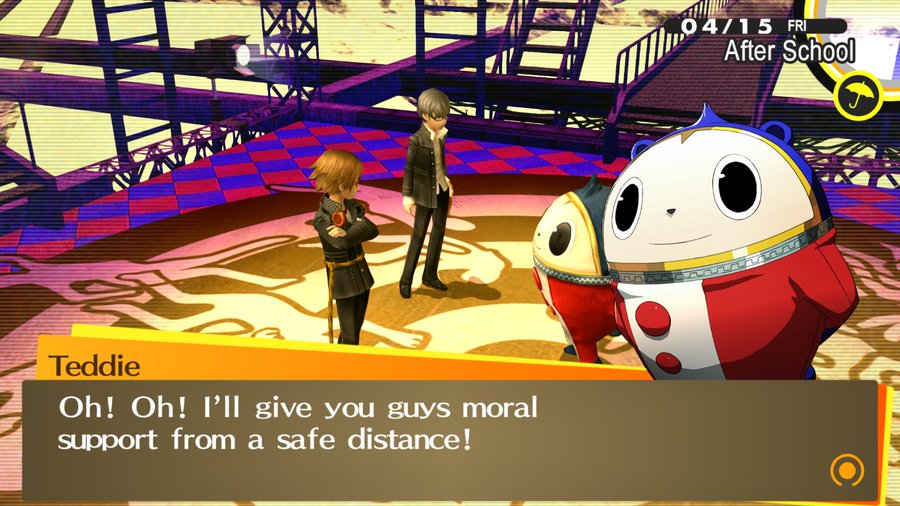five bucks
Knight at Arms

Bannerlord has systems like Personality Traits and Political Stances which sound great, like they could make characters feel unique and add depth to politics, strategy and roleplaying... but actually, they barely do anything.
For example, "cautious" lords will never surrender, even if outnumbered 10v1000; "merciful" lords still raid villages. All lords usually vote the same way on every issue, like a hivemind.
Some traits are also insanely difficult to get for the player.
Here are my suggestions on how these systems could be made more fun and useful, or how (in some cases) the existing trait gain rates could be tweaked to be more realistically attainable.
Honorable/Dishonorable
Noble Trait effects:
* Honorable nobles put high value on relation - with you and their liege - when deciding whether to defect.
* Dishonorable nobles will totally ignore relations, and freely defect if they think it makes financial/strategic sense.
Companion Trait effects:
* Honourable companions become angry when the player fails to complete a quest properly. If done 3 times, they will quit.
* A Dishonorable companion lowers party morale by -1 per day.
Player Trait gain/loss:
* +2% Honor each time you complete a quest as you agreed to with the quest-giver.
* -5% Honor every time you fail a quest, or choose an option which breaks your agreement with the quest-giver.
* -5% Honor when you leave troops behind to cover your retreat.
* -20% Honor when you break an oath to your liege by leaving a kingdom with your fiefs.
Brave/Cautious
Noble Trait effects:
* Brave nobles like voting for war, and against peace.
* Cautious ones like peace, and dislike war.
* Cautious nobles agree to surrender if your party strength is 3x higher than theirs. In battle, they retreat when their army's strength value is 3x lower than the enemy's.
* Nobles with no trait agree to surrender if your party strength is 5x higher than theirs. In battle, they retreat when their army's strength value is 5x lower than the enemy's.
* Brave nobles never surrender, and never retreat.
Companion Trait effects:
* Brave companions get angry if the player retreats from battle. If done 3 times, they will quit.
* Cautious companions will retreat in battle when your strength value is 3x lower than the enemy's.
* Companions with no trait will retreat in battle when your strength value is 5x lower than the enemy's.
* Brave companions will never retreat.
Player Trait gain/loss:
* +2% Bravery when you win or lose a battle where you had lower strength than the enemy.
* -5% Bravery when you retreat from a battle where you have lower strength than the enemy.
Generous/Closefisted
Noble Trait effects:
* Closefisted nobles put high value on money/fiefs when deciding whether to defect.
* Closefisted rulers give themselves fiefs more often.
* Generous rulers give others fiefs more often.
* Generous nobles vote for others to get fiefs more often.
Companion Trait effects:
* A Generous companion raises party morale by +1 per day.
* Closefisted companions get angry when the player fails to pay their daily wage. If done 3 times, they will quit.
Player Trait gain/loss:
* +2% Generosity for each day you have more than 7 food types in your inventory and 50+ troops.
* +2% Generosity for each fief you award to a vassal.
* +2% Generosity each time you give money to a beggar in towns, or buy a meal at a tavern for your troops.
* +2% Generosity when you choose a "generous" quest option, e.g. sharing profits with villagers.
* -10% Generosity for each day you do not pay troop wages.
* -5% Generosity for each fief you give to yourself against your council's approval.
* -5% Generosity for any quest option where you cause someone to lose money.
Merciful/Cruel
Noble Trait effects:
* Merciful nobles never raid villages.
* Merciful nobles never execute prisoners.
* Nobles without traits have a base 1% chance to execute prisoners, which increases by 1% for every negative relation point with the prisoner.
* Cruel nobles have a base 10% chance to execute prisoners, which increases by 1% for every negative relation point with that prisoner.
* Merciful nobles have a base 10% chance to set the player free after battle, which increases by 1% for every positive relation point with the player.
Companion Trait effects:
* A Merciful companion raises party morale by +1 per day.
Player Trait gain:
* +2% Mercy when you release a noble prisoner after battle.
* +2% Mercy when you give money to a beggar in a town.
* +5% Mercy when you choose a "merciful" quest option, e.g. not executing Radagos in the main quest.
* -10% Mercy when you execute a noble who does not have the Cruel trait. If they have the Cruel trait, you do not lose Mercy.
Calculating/Impulsive
Noble Trait effects:
* Calculating nobles are less influenced by their Personality Traits and political preferences when voting or defecting.
* Impulsive nobles are highly influenced by their Personality Traits and political preferences when voting or defecting.
* Calculating nobles are always willing to negotiate. Impulsive nobles are never willing to negotiate.
* Calculating rulers are more influenced by their councils when making decisions. Impulsive rulers will mostly ignore their councils.
Companion Trait effects:
* Each Impulsive companion lowers your party's daily morale by 1.
Player Trait gain:
* +2% Calculating when you win a battle where your strength rating is lower.
* -10% Calculating when you lose a battle where your strength rating is lower.
* +2% Calculating when you leave troops behind to retreat.
* +2% Calculating when you successfully negotiate with the enemy.
* +2% Calculating when you choose a quest option where you "talk your way out".
Political preferences
There is a system in Bannerlord's code for nobles to have political preferences that are Authoritarian, Oligarchic or Egalitarian, and for it to influence their policy votes. However, it currently has almost no effect. Here is how it could work better.
"Authoritarian" nobles vote for policies that benefit the ruling clan. Rhagaea, Raganvad, Monchug, and Derthert are Authoritarian.
"Oligarchic" nobles vote for policies that benefit the vassal clans. Lucon and Unqid are Oligarchic.
"Egalitarian" nobles vote for policies that benefit the common people and soldiers. Garios and Caladog are Egalitarian.
If they have enough influence, nobles will always vote on policies based on their political preference.
The system is already there in the game's code - but it is such a low impact that I have only ever seen it change a lord's vote a few times.
For example, "cautious" lords will never surrender, even if outnumbered 10v1000; "merciful" lords still raid villages. All lords usually vote the same way on every issue, like a hivemind.
Some traits are also insanely difficult to get for the player.
Here are my suggestions on how these systems could be made more fun and useful, or how (in some cases) the existing trait gain rates could be tweaked to be more realistically attainable.
Honorable/Dishonorable
Noble Trait effects:
* Honorable nobles put high value on relation - with you and their liege - when deciding whether to defect.
* Dishonorable nobles will totally ignore relations, and freely defect if they think it makes financial/strategic sense.
Companion Trait effects:
* Honourable companions become angry when the player fails to complete a quest properly. If done 3 times, they will quit.
* A Dishonorable companion lowers party morale by -1 per day.
Player Trait gain/loss:
* +2% Honor each time you complete a quest as you agreed to with the quest-giver.
* -5% Honor every time you fail a quest, or choose an option which breaks your agreement with the quest-giver.
* -5% Honor when you leave troops behind to cover your retreat.
* -20% Honor when you break an oath to your liege by leaving a kingdom with your fiefs.
Brave/Cautious
Noble Trait effects:
* Brave nobles like voting for war, and against peace.
* Cautious ones like peace, and dislike war.
* Cautious nobles agree to surrender if your party strength is 3x higher than theirs. In battle, they retreat when their army's strength value is 3x lower than the enemy's.
* Nobles with no trait agree to surrender if your party strength is 5x higher than theirs. In battle, they retreat when their army's strength value is 5x lower than the enemy's.
* Brave nobles never surrender, and never retreat.
Companion Trait effects:
* Brave companions get angry if the player retreats from battle. If done 3 times, they will quit.
* Cautious companions will retreat in battle when your strength value is 3x lower than the enemy's.
* Companions with no trait will retreat in battle when your strength value is 5x lower than the enemy's.
* Brave companions will never retreat.
Player Trait gain/loss:
* +2% Bravery when you win or lose a battle where you had lower strength than the enemy.
* -5% Bravery when you retreat from a battle where you have lower strength than the enemy.
Generous/Closefisted
Noble Trait effects:
* Closefisted nobles put high value on money/fiefs when deciding whether to defect.
* Closefisted rulers give themselves fiefs more often.
* Generous rulers give others fiefs more often.
* Generous nobles vote for others to get fiefs more often.
Companion Trait effects:
* A Generous companion raises party morale by +1 per day.
* Closefisted companions get angry when the player fails to pay their daily wage. If done 3 times, they will quit.
Player Trait gain/loss:
* +2% Generosity for each day you have more than 7 food types in your inventory and 50+ troops.
* +2% Generosity for each fief you award to a vassal.
* +2% Generosity each time you give money to a beggar in towns, or buy a meal at a tavern for your troops.
* +2% Generosity when you choose a "generous" quest option, e.g. sharing profits with villagers.
* -10% Generosity for each day you do not pay troop wages.
* -5% Generosity for each fief you give to yourself against your council's approval.
* -5% Generosity for any quest option where you cause someone to lose money.
Merciful/Cruel
Noble Trait effects:
* Merciful nobles never raid villages.
* Merciful nobles never execute prisoners.
* Nobles without traits have a base 1% chance to execute prisoners, which increases by 1% for every negative relation point with the prisoner.
* Cruel nobles have a base 10% chance to execute prisoners, which increases by 1% for every negative relation point with that prisoner.
* Merciful nobles have a base 10% chance to set the player free after battle, which increases by 1% for every positive relation point with the player.
Companion Trait effects:
* A Merciful companion raises party morale by +1 per day.
Player Trait gain:
* +2% Mercy when you release a noble prisoner after battle.
* +2% Mercy when you give money to a beggar in a town.
* +5% Mercy when you choose a "merciful" quest option, e.g. not executing Radagos in the main quest.
* -10% Mercy when you execute a noble who does not have the Cruel trait. If they have the Cruel trait, you do not lose Mercy.
Calculating/Impulsive
Noble Trait effects:
* Calculating nobles are less influenced by their Personality Traits and political preferences when voting or defecting.
* Impulsive nobles are highly influenced by their Personality Traits and political preferences when voting or defecting.
* Calculating nobles are always willing to negotiate. Impulsive nobles are never willing to negotiate.
* Calculating rulers are more influenced by their councils when making decisions. Impulsive rulers will mostly ignore their councils.
Companion Trait effects:
* Each Impulsive companion lowers your party's daily morale by 1.
Player Trait gain:
* +2% Calculating when you win a battle where your strength rating is lower.
* -10% Calculating when you lose a battle where your strength rating is lower.
* +2% Calculating when you leave troops behind to retreat.
* +2% Calculating when you successfully negotiate with the enemy.
* +2% Calculating when you choose a quest option where you "talk your way out".
Political preferences
There is a system in Bannerlord's code for nobles to have political preferences that are Authoritarian, Oligarchic or Egalitarian, and for it to influence their policy votes. However, it currently has almost no effect. Here is how it could work better.
"Authoritarian" nobles vote for policies that benefit the ruling clan. Rhagaea, Raganvad, Monchug, and Derthert are Authoritarian.
"Oligarchic" nobles vote for policies that benefit the vassal clans. Lucon and Unqid are Oligarchic.
"Egalitarian" nobles vote for policies that benefit the common people and soldiers. Garios and Caladog are Egalitarian.
If they have enough influence, nobles will always vote on policies based on their political preference.
Feudal Inheritance: Oligarchs support, Authoritarians oppose.
Castle Charters: Oligarchs support, Egalitarians oppose.
Senate: Oligarchs support, Authoritarians oppose.
Grazing Rights: Egalitarians support, Oligarchs oppose.
Sacred Majesty: Authoritarians support, Oligarchs oppose.
Land Grants for Veterans: Egalitarians support, Oligarchs oppose.
Cantons: Authoritarians support, Oligarchs oppose.
Lawspeakers: Oligarchs support, Egalitarians oppose.
Royal Privilege: Authoritarians support, Oligarchs oppose.
Council of the Commons: Egalitarians support, Oligarchs oppose.
Precarial Land Tenure: Authoritarians support, Oligarchs oppose.
Land Tax: Authoritarians support, Oligarchs oppose.
State Monopolies: Authoritarians support, Egalitarians oppose.
Magistrates: Authoritarians support, Egalitarians oppose.
Debasement of the Currency: Authoritarians support, Egalitarians oppose.
Crown Duty: Authoritarians support, Egalitarians oppose.
Imperial Towns: Authoritarians support, Oligarchs oppose.
Royal Commissions: Authoritarians support, Oligarchs oppose.
Royal Guard: Authoritarians support, Oligarchs oppose.
War Tax: Authoritarians support, Egalitarians oppose.
King's Mercenaries: Authoritarians support, Oligarchs oppose.
Lords' Privy Council: Oligarchs support, Egalitarians oppose.
Military Coronae: Egalitarians support, Oligarchs oppose.
Serfdom: Oligarchs support, Egalitarians oppose.
Noble Retinues: Authoritarians support, Oligarchs oppose.
Bailiffs: Oligarchs support, Egalitarians oppose.
Hunting Rights: Oligarchs support, Egalitarians oppose.
Road Tolls: Oligarchs support, Egalitarians oppose.
Peerage: Oligarchs support, Authoritarians oppose.
Marshals: Oligarchs support, Authoritarians oppose.
Citizenship: Egalitarians support, Authoritarians oppose.
Forgiveness of Debts: Egalitarians support, Oligarchs oppose.
Tribunes of the People: Egalitarians support, Authoritarians oppose.
Trial by Jury: Egalitarians support, Authoritarians oppose.
Castle Charters: Oligarchs support, Egalitarians oppose.
Senate: Oligarchs support, Authoritarians oppose.
Grazing Rights: Egalitarians support, Oligarchs oppose.
Sacred Majesty: Authoritarians support, Oligarchs oppose.
Land Grants for Veterans: Egalitarians support, Oligarchs oppose.
Cantons: Authoritarians support, Oligarchs oppose.
Lawspeakers: Oligarchs support, Egalitarians oppose.
Royal Privilege: Authoritarians support, Oligarchs oppose.
Council of the Commons: Egalitarians support, Oligarchs oppose.
Precarial Land Tenure: Authoritarians support, Oligarchs oppose.
Land Tax: Authoritarians support, Oligarchs oppose.
State Monopolies: Authoritarians support, Egalitarians oppose.
Magistrates: Authoritarians support, Egalitarians oppose.
Debasement of the Currency: Authoritarians support, Egalitarians oppose.
Crown Duty: Authoritarians support, Egalitarians oppose.
Imperial Towns: Authoritarians support, Oligarchs oppose.
Royal Commissions: Authoritarians support, Oligarchs oppose.
Royal Guard: Authoritarians support, Oligarchs oppose.
War Tax: Authoritarians support, Egalitarians oppose.
King's Mercenaries: Authoritarians support, Oligarchs oppose.
Lords' Privy Council: Oligarchs support, Egalitarians oppose.
Military Coronae: Egalitarians support, Oligarchs oppose.
Serfdom: Oligarchs support, Egalitarians oppose.
Noble Retinues: Authoritarians support, Oligarchs oppose.
Bailiffs: Oligarchs support, Egalitarians oppose.
Hunting Rights: Oligarchs support, Egalitarians oppose.
Road Tolls: Oligarchs support, Egalitarians oppose.
Peerage: Oligarchs support, Authoritarians oppose.
Marshals: Oligarchs support, Authoritarians oppose.
Citizenship: Egalitarians support, Authoritarians oppose.
Forgiveness of Debts: Egalitarians support, Oligarchs oppose.
Tribunes of the People: Egalitarians support, Authoritarians oppose.
Trial by Jury: Egalitarians support, Authoritarians oppose.
The system is already there in the game's code - but it is such a low impact that I have only ever seen it change a lord's vote a few times.
Last edited:
















